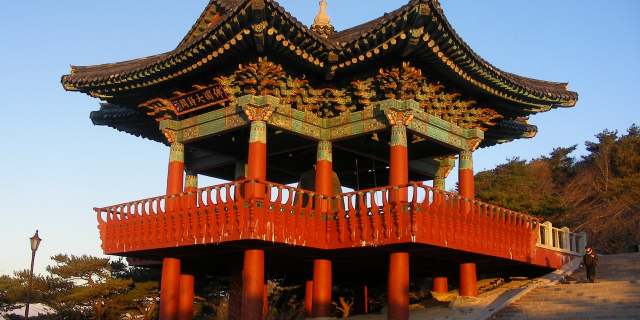Beijing
Context of Beijing
Beijing ( bay-JING; Chinese: 北京; pinyin: Běijīng; Mandarin pronunciation: [pèɪ.tɕíŋ] (listen)), alternatively romanized as Peking ( pee-KING), is the capital of the People's Republic of China. With over 21 million residents, Beijing is the world's most populous national capital city and is China's second largest city after Shanghai. It is located in Northern China, and is governed as a municipality under the direct administration of the State Council with 16 urban, su...Read more
Beijing ( bay-JING; Chinese: 北京; pinyin: Běijīng; Mandarin pronunciation: [pèɪ.tɕíŋ] (listen)), alternatively romanized as Peking ( pee-KING), is the capital of the People's Republic of China. With over 21 million residents, Beijing is the world's most populous national capital city and is China's second largest city after Shanghai. It is located in Northern China, and is governed as a municipality under the direct administration of the State Council with 16 urban, suburban, and rural districts. Beijing is mostly surrounded by Hebei Province with the exception of neighboring Tianjin to the southeast; together, the three divisions form the Jingjinji megalopolis and the national capital region of China.
Beijing is a global city and one of the world's leading centres for culture, diplomacy, politics, finance, business and economics, education, research, language, tourism, media, sport, science and technology and transportation. As a megacity, Beijing is the second largest Chinese city by urban population after Shanghai. It is home to the headquarters of most of China's largest state-owned companies and houses the largest number of Fortune Global 500 companies in the world, as well as the world's four biggest financial institutions by total assets. It is also a major hub for the national highway, expressway, railway, and high-speed rail networks. The Beijing Capital International Airport has been the second busiest in the world by passenger traffic (Asia's busiest) since 2010, and, as of 2016, the city's subway network is the busiest and longest in the world. The Beijing Daxing International Airport, a second international airport in Beijing, is the largest single-structure airport terminal in the world.
Combining both modern and traditional style architectures, Beijing is one of the oldest cities in the world, with a rich history dating back over three millennia. As the last of the Four Great Ancient Capitals of China, Beijing has been the political center of the country for most of the past eight centuries, and was the largest city in the world by population for much of the second millennium CE. With mountains surrounding the inland city on three sides, in addition to the old inner and outer city walls, Beijing was strategically poised and developed to be the residence of the emperor and thus was the perfect location for the imperial capital. The city is renowned for its opulent palaces, temples, parks, gardens, tombs, walls and gates. Beijing is one of the most important tourist destinations of the world. In 2018, Beijing was the second highest earning tourist city in the world after Shanghai. Beijing is home to many national monuments and museums and has seven UNESCO World Heritage Sites—the Forbidden City, Temple of Heaven, Summer Palace, Ming Tombs, Zhoukoudian, and parts of the Great Wall and the Grand Canal—all of which are popular tourist locations. Siheyuans, the city's traditional housing style, and hutongs, the narrow alleys between siheyuans, are major tourist attractions and are common in urban Beijing.
Beijing's public universities make up more than one-fifth of Double First-Class Universities, and many of them consistently rank among the best in the Asia-Pacific and the world. Beijing is home to the two best C9 League universities (Tsinghua and Peking) in Asia & Oceania region and emerging countries. Beijing CBD is a center for Beijing's economic expansion, with the ongoing or recently completed construction of multiple skyscrapers. Beijing's Zhongguancun area is a world leading center of scientific and technological innovation as well as entrepreneurship. Beijing has been ranked the city with the largest scientific research output by the Nature Index since 2016. The city has hosted numerous international and national sporting events, the most notable being the 2008 Summer Olympics and 2008 Summer Paralympics Games. In 2022, Beijing became the first city ever to host both the Summer and Winter Olympics, and also the Summer and Winter Paralympics. Beijing hosts 175 foreign embassies as well as the headquarters of many organizations, including the Asian Infrastructure Investment Bank (AIIB), the Shanghai Cooperation Organisation (SCO), the Silk Road Fund, the Chinese Academy of Sciences, the Chinese Academy of Engineering, the Chinese Academy of Social Sciences, the Central Academy of Fine Arts, the Central Academy of Drama, the Central Conservatory of Music, and the Red Cross Society of China.






























